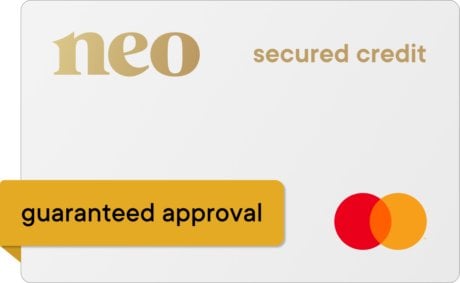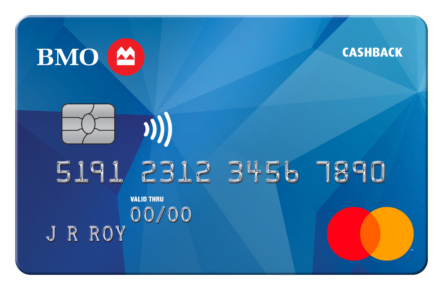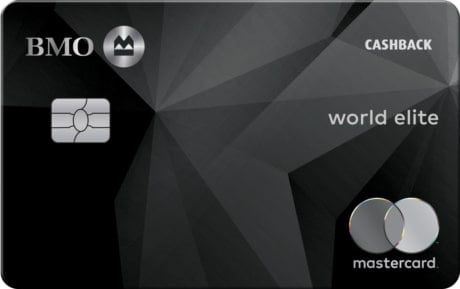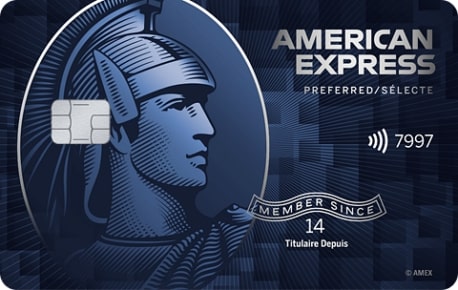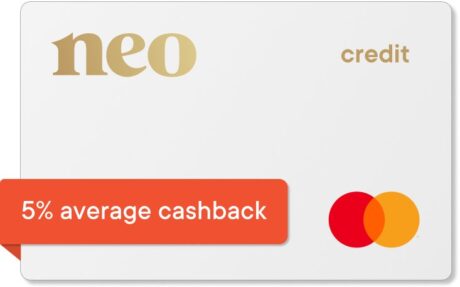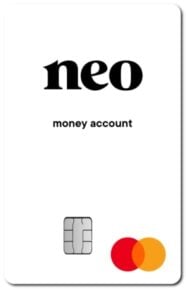Many or all of the products featured here are from our partners who compensate us. This may influence which products we write about and where and how the product appears on a page. However, this does not influence our evaluations. Our opinions are our own.
When it comes to the complex world of credit card rewards, there are few words as simple — or as sweet — as “cash back.” If you’re looking for a cash-back credit card in Canada, you have plenty of choices.
Best Cash Back Credit Cards in Canada from Our Partners
Best cash-back credit cards in Canada
Earn up to $1,000 in cash back on grocery shopping and recurring bill payments with a 4% rewards rate in both categories.
Pros
- It’s rare for a credit card to offer 4% cash back on two major spending categories. It’s even rarer to set a $25,000 annual limit to that 4% — a $1,000 value — before reverting to the healthy 1% base rate.
- You can waive the $120 annual fee every single year by using the Scotiabank Ultimate Package.
Cons
- The cash back earned is hands-off. You have to wait until November, and then it’s only redeemable as a statement credit. If you have a Scotiabank account, that annual payout can be deposited into your bank account.
- The 4% rate won’t mean much to you if you don’t buy a lot of groceries or often buy your food at somewhere that Visa doesn’t classify as a grocery store or supermarket, such as Canadian Tire, FreshCo, London Drugs, Walmart and No Frills.
- SPECIAL OFFER: Earn 10% cash back on all purchases for the first 3 months (up to $2,000 in total purchases). No annual fee in the first year, including on supplementary cards. Offer ends October 31, 2024.
- Earn 4% for every $1 you spend on grocery store purchases, recurring bill payments, and subscription purchases.
- Earn 2% for every $1 you spend on gas purchases and daily transit purchases.
- Earn 1% cash back on all other purchases with no cash back limit.
- Redeem cash back as a statement credit in November.
- Visa Infinite benefits, including Visa Infinite* Concierge, Visa Infinite* Luxury Hotel Collection, Visa Infinite* Dining Series, and entertainment and lifestyle offers.
- Save up to 25% off base rates at participating AVIS locations and at participating Budget locations in Canada and the U.S.
- Access to Scotia SelectPay™.
- To be eligible, $60,000 (individual) or $100,000 (household) annual income is required, or $250,000 minimum assets under management. Also, you must have a Canadian credit file and be a Canadian resident that is the age of majority in the province or territory where you live.
- Terms and Conditions Apply. Click ‘Apply Now’ for complete details.
If this card doesn’t seem like a good fit for your wallet, take a look at NerdWallet’s selection of the best credit cards to help find the right option for you.
Pros
- A small $50 minimum deposit makes this card accessible to consumers of all budgets.
- Cashback rate of up to 4%.
Cons
- Interest rates could be as high as 29.99% for some users.
- Build credit history with on-time payments.
- Set your credit limit and get started with as little as $50.
- Guaranteed approval with no credit score needed to apply.
- 0.5% guaranteed monthly minimum cashback.
- Only $5 / Month
- Depending on your Required Everyday account balance, customers can earn cashback up to 4% on gas, 4% on groceries, and 1% on all other purchases (up to a yearly spend cap).
- Personalized Insights AI generates tailored information and recommendations designed specifically for you.
Whether you’re looking to build credit from scratch or rebuild credit after a bad setback, a secured credit card can be an invaluable tool. See our selections for the best secured credit cards in Canada to find options that will help you strengthen your credit.
The BMO CashBack® Mastercard®* for Students has impressive earn rates — including 3% on groceries — and valuable perks, all without an annual fee.
Pros
- Earn flexible and easy-to-redeem cash rewards on everyday purchases.
- There’s no minimum threshold for redeeming your cash-back rewards. Redeem as little as $1 if you want.
Cons
- Accelerated earn rates for groceries and recurring bills are capped at $500 per billing cycle.
- Insurance is limited to extended warranty and purchase protection.
- Welcome offer: Get 5% cash back in your first 3 months.*
- Then get 3% cash back on grocery purchases, 1% cash back on recurring bill payments and 0.5% unlimited cash back on all other purchases!*
- Now earn the highest cash back on groceries in Canada without paying an annual fee!†
- Get cash back every time you spend, plus start building a healthy credit history.
- Want to get your cash back ASAP? Now you can redeem your cash back anytime through direct deposit, as a credit on your statement or into your BMO InvestorLine account.*
- No Annual fee.*
- Extended Warranty.*
- Purchase Protection.*
- Receive a discount on car rentals.*
- *Terms and conditions apply.
- †Statement based on a comparison of the non-promotional grocery rewards earn rate on Canadian cash back credit cards as of January 4, 2023.
- BMO is not responsible for maintaining the content on this site. Please click on the Apply now link for the most up to date information.
Finding a student credit card with the right combination of features for your lifestyle can be daunting, especially if it’s your first time choosing a card. Compare our picks for the best student credit cards in Canada to find the best choice for you.
You won’t need a strategy to make the most out of this bonus-category card. The BMO CashBack® World Elite®* Mastercard®* spends like a flat-rate card thanks to stellar rates on four popular daily spending categories.
Pros
- Score generous cash-back rates for popular spending categories: 5% on groceries, 4% on transit, 3% on gas, 2% on recurring bills, and 1% on everything else.
- Feel protected with 13 types of insurance and fantastic travel benefits.
Cons
- Spending categories come with easily-hit spending caps, but the 1% base rate still earns you value once you hit your monthly bonus rate limits.
- The $120 annual fee is pretty steep. While we think you’ll more than make up for it through cash back savings, the no-fee BMO CashBack® Mastercard®* is a great alternative.
- Welcome offer: Get up to 10% cash back in your first 3 months and the $120 annual fee waived in the first year.*
- Earn more cash back on the categories that mean the most: 5% on groceries.* 4% on transit including ride sharing, taxis and public transportation.* 3% on gas and electric vehicle charging.* 2% on recurring bill payments like your monthly phone bill or favourite streaming service.* 1% unlimited cashback on all other purchases.*
- Get the highest cash back earn rate on groceries in Canada.†
- Get valuable benefits and offers for digital everyday services from a variety of on-demand apps and subscription services.
- Extended Warranty Plus.*
- Purchase Protection Plus.*
- Complimentary membership in Mastercard Airport Experiences provided by LoungeKey.*
- Access over 1 million Wi-Fi hotspots around the world – all at no added cost, and no added fees or roaming charges.*
- Complimentary Roadside Assistance Program.*
- BMO CashBack World Elite Travel and Medical Protection.*
- BMO Concierge Service.*
- Unlock Mastercard Travel Rewards cashback offers when you travel and shop outside of Canada.
- *Terms and conditions apply.
- †Statement based on a comparison of the non-promotional grocery rewards earn rate on Canadian cash back credit cards as of January 4, 2023.
- BMO is not responsible for maintaining the content on this site. Please click on the Apply now link for the most up to date information.
No single rewards card is right for everyone. It’s all about how you spend money and what kind of rewards you value. See our choices for the best rewards credit cards in Canada to select the best option for you.
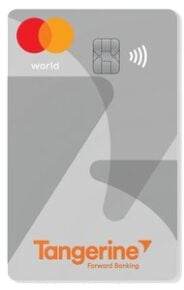
You can earn unlimited cash back at a 2% rate in up to three categories of your choice and 0.50% back on other everyday purchases while benefiting from exclusive Tangerine World Mastercard® perks and insurance cover.
Pros
- Choose the best 2% rewards categories for you based on your spending.
- A variety of additional perks like savings on subscription services, rental car collision/loss damage, mobile device insurance, and more.
Cons
- Higher eligibility requirement for gross income.
- Apply for a Tangerine World Mastercard® by October 31, 2024 and earn an extra 10% back* (up to $100) when you spend up to $1,000 in everyday purchases within your first 2 months.
- Earn 2% Money-Back Rewards on purchases in two 2% Money-Back Categories of your choice, and 0.50% Money-Back Rewards on all other purchases.
- Have your Money-Back Rewards deposited into a Tangerine Savings Account, and get a 3rd 2% Money-Back Category.
- No limit on the amount of Money-Back Rewards you can earn.
- Change your 2% Money-Back Categories to suit your spending.
- With Mastercard Travel Rewards, you can unlock cashback offers and get a rebate applied directly to your statement, by using your Tangerine World Mastercard at select merchants that accept Mastercard while travelling outside of Canada.
- Save on the things you love with your Tangerine World Mastercard. Enjoy special benefits and offers from a growing lineup of on-demand apps and subscription services made available to you as a Tangerine World Mastercard cardholder.
- Make the most of your travel with Mastercard® Travel Pass Provided by DragonPass. Your complimentary membership gives you exclusive dining, retail and spa offers in over 650 airports worldwide, along with access to over 1,300 airport lounges at $32 USD per visit. Learn more at Mastercard® Travel Pass.
- Rental Car Collision/Loss Damage Insurance**: Damage and theft protection for your car rental when you rent for up to 31 consecutive days and charge the full cost of your rental to your Card.
- Mobile Device Insurance**: Protection on new cell phones, smartphones or tablets when you charge the full cost to your Card, or when you purchase it through a plan and charge all of your wireless bill payments to your Card. Covers up to $1,000 if your mobile device is lost, stolen, accidentally damaged or experiences mechanical failure.
- Preferred rates: 19.95% for purchases and cash advances.
- To be eligible, a $50,000 (individual) annual income is required. Also, you must have a Canadian credit file and be a Canadian resident of the age of majority in the province or territory where you live.
The BMO CashBack® Mastercard®* offers attractive earn rates on everyday purchases like groceries and utility bills, making it easy to quickly rack up rewards that you can turn into cold hard cash.
Pros
- Attractive introductory offer, especially if you’re interested in a balance transfer.
- No minimum threshold for redeeming your cash-back rewards. Redeem as little as $1 if you want.
Cons
- Accelerated earn rates for groceries and recurring bills are capped at $500 per billing cycle, a ceiling that might be easy to hit if you have a family or higher monthly balances.
- Offers fewer travel perks and types of insurance than some other cards.
- Welcome offer: Get 5% cash back in your first 3 months.*
- Then get 3% cash back on grocery purchases, 1% cash back on recurring bill payments and 0.5% unlimited cash back on all other purchases!*
- Now earn the highest cash back on groceries in Canada without paying an annual fee!†
- Get a 0.99% introductory interest rate on Balance Transfers for 9 months, 2% fee applies to balance amounts transferred.*
- No Annual fee.*
- Want to get your cash back ASAP? Now you can redeem your cash back anytime through direct deposit, as a credit on your statement or into your BMO InvestorLine account.*
- Extended Warranty.*
- Purchase Protection.*
- Receive a discount on car rentals.*
- *Terms and conditions apply.
- †Statement based on a comparison of the non-promotional grocery rewards earn rate on Canadian cash back credit cards as of January 4, 2023.
- BMO is not responsible for maintaining the content on this site. Please click on the Apply now link for the most up to date information.
If this card doesn’t seem like a good fit for your wallet, take a look at NerdWallet’s selection of the best newcomer credit cards to help find the right option for you.
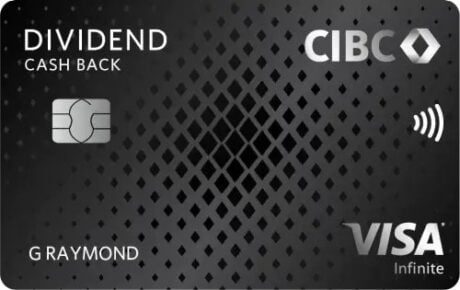
You can earn some extremely attractive rates on gas and groceries with the CIBC Dividend Visa Infinite Card — up to a $3,200 cash-back value.
Pros
- Flexible and easy redemption. You can redeem cash back anytime through CIBC Online and Mobile Banking.
- Generous cash back rates on five popular spending categories.
Cons
- You’ll only earn 1% cash back after spending $80,000 across bonus categories. Most credit cards have specific limits for each category, but the CIBC Dividend Visa Infinite collectively caps all bonus rates with an $80,000 limit.
- Insurance offerings are limited compared to what you might expect from a card with a $120 annual fee. However, you can avoid this cost every single year with a CIBC Smart Plus™ Account.
- 4% on groceries, gas, and electric vehicle charging, and 2% on transportation, dining and recurring payments. Accelerated rates apply to the first $80,000 spent per year.
- 1% on everything else, and after spending $80,000.
- 0.25% cash back for every $1 spent on a CIBC Global Money Transfer, with no foreign transaction fees.
- Redeem a minimum of $25 cash back at any time through CIBC Online and Mobile Banking.
- $120 annual fee.
- Visa Infinite benefits, including Visa Infinite Concierge, Visa Infinite Luxury Hotel Collection, Visa Infinite Dining Series, and entertainment and lifestyle offers.
- Save up to 10 cents per litre at Chevron, Ultramar and Pioneer gas stations when you link your card with Journie Rewards.
- Access to CIBC Pace It.
- Five types of insurance provided, including 10-day out-of-province/out-of-country emergency medical benefits — up to $5 million in coverage.
- Preferred rates: 20.99% for purchases, 22.99% for cash advances.
- To be eligible, $60,000 (individual) or $100,000 (household) annual income is required. Also, you must have a Canadian credit file and be a Canadian resident of the age of majority in the province or territory where you live.
Get rewarded at the gas station and grocery store with 4% cash back, plus enjoy a high ongoing flat-rate of 2% cash back on everything else.
Pros
- The unlimited 2% cash-back earn rate is among the highest we evaluated.
- You can earn up to $400 in the first ten months.
Cons
- The bonus rewards rate on gas and groceries drops down to 2% after a $30,000 annual spend.
- In your first 10 months as a new SimplyCash® Preferred Card from American Express Cardmember, you can earn a $40 statement credit for each monthly billing period in which you spend $750 in purchases on your Card. This could add up to $400 in statement credits in the first 10 months.
- Earn accelerated earn rates on eligible gas and grocery purchases.
- Earn 4% cash back on eligible gas station purchases in Canada, 4% cash back on eligible grocery store purchases in Canada (up to $1,200 cash back annually) and 2% cash back on all other purchases.
- Access events and special offers curated for Cardmembers with American Express® Experiences.
- Extensive insurance coverage and 24/7 Customer Service.
- American Express is not responsible for maintaining or monitoring the accuracy of information on this website. For full details and current product information click the Apply now link. Conditions apply.
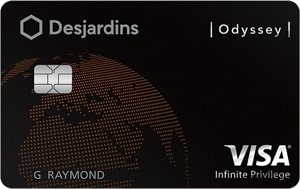
Not only does this low-interest card feature accelerated rates on daily spending, but the Desjardins Odyssey Visa Infinite Privilege comes with truly impressive insurance coverage.
Pros
- Comprehensive travel insurance includes emergency medical worth $5 million per person, covering 60 days for ages 59 and under and 15-days for ages 75 and under.
- 18 airport lounge visits included.
Cons
- No intro offer.
- There’s a high annual fee and $150,000 (individual) or $200,000 (household) annual income is required, making this card inaccessible for many.
- 4% in BONUSDOLLARS per dollar spent on restaurants, entertainment and public transportation.
- 3% in BONUSDOLLARS per dollar spent on groceries and travel.
- 1.75% in BONUSDOLLARS per dollar spent on everything else.
- Redeem BONUSDOLLARS for statement credits, financial products and services, charity, rewards, gift cards, purchases, and travel.
- 1 BONUSDOLLAR earned = $1 you can redeem. BONUSDOLLARs do not expire.
- $295 annual fee for Desjardins members, $395 annual fee for non-members.
- Airport lounge access through a complimentary Priority Pass membership, plus 6 free visits per year. 12 visits per year to the Desjardin Odyssey Lounge in the Montreal-Trudeau International Airport.
- Visa Infinite Privilege benefits including Visa Infinite Privilege Concierge, Visa Infinite Luxury Hotel Collection, Visa Infinite Dining Series, and Entertainment & Lifestyle Offers.
- Up to 25% off Hertz car rentals and up to 10% off Thrifty or Dollar rentals.
- Access to Accord D financing up to $5,000 a day cash advances at a rate of 9.9%.
- 12 types of insurance provided, including 60-day travel medical benefits — up to $5,000,000 in coverage per person under age 59. 31-day coverage is available for ages 60-64. 15-day coverage is available for ages 65-75.
- Preferred rates: 11.90% for purchases and 12.90% for cash advances.
- To be eligible, $150,000 (individual) or $200,000 (household) annual income, or assets under management of $400,000 is required. Also, you must have a Canadian credit file and be a Canadian resident of the age of majority in the province or territory where you live.
Pros
- Cashback rate of up to 4%.
- No annual fee.
Cons
- Perks can be added, but for a fee.
- Purchase interest rate can reach as high as 29.99%, and cash advance rate can reach 31.99%.
- No annual fees.
- Depending on your Required Everyday account balance, customers can earn cashback up to 4% on gas, 4% on groceries, and 1% on all other purchases (up to a yearly spend cap).
- Pay with Neo Mastercard to earn cashback. Then split the bill in the app to send multiple Interac e-Transfer® requests instantly. The payments will be directly deposited into your Neo Everyday account.
- Cash out the cashback you’ve earned with Neo Mastercard to a Neo Everyday account to take advantage of one of the highest everyday interest rates.
The Neo Money™ Card is a no-fee prepaid Mastercard linked to the online bank’s popular high interest savings account. Earn 0.1% interest on your funds in the Neo Money account and enjoy up to 3% cashback on spending (up to a yearly spend cap).
Pros
- Build your savings with competitive interest on funds held in the Neo Money account.
- Free Interac e-Transfers, bill payments and mobile bank-to-bank transfers.
- Earn up to 3% cashback on spending (up to a yearly spend cap).
Cons
- The cashback you receive will vary depending on where you shop.
- Get high interest on your savings and high cashback when you spend with your Neo Money™ card.
- Depending on your account balance, customers can earn cashback up to 3% on gas, 3% on groceries, and 1% on all other purchases (up to a yearly spend cap).
- Instant access to your balance with no card loading required.
- Free everyday transactions and no monthly fees.
- Withdraw from any ATM worldwide.
- 0.1% interest on every dollar.
- Enable the Auto-Save feature to set up automatic savings and register your email to instantly deposit Interac e-Transfer® requests in your Neo Everyday account.
- Take the pain out of bill pay by setting up automated payments from your Neo Everyday account.
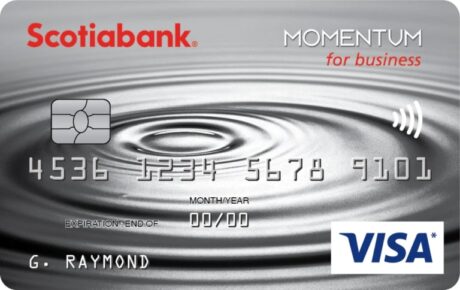
Growing companies should look at the Scotia Momentum for Business Visa card for its low annual fee, impressive introductory rate for balance transfers, and strong cash back earn rate on common business purchases.
Pros
- A low introductory interest rate on balance transfers, plus 25-day interest-free grace periods on new purchases.
- Plenty of opportunities to earn cash back.
- Potential credit limits range from $500 to $100,000.
Cons
- No reward bonuses upon card approval.
- Few perks beyond relatively limited insurance options.
- The 3% cash back only applies to the first $50,000 in eligible purchases.
- Intro offer: 2.99% interest rate on balance transfers, Scotia® Credit Card Cheques and cash-like transactions for the first six months (22.99% after that). This rate cannot be used to transfer a balance from another Scotiabank Account, or to make a payment or deposit to another Scotiabank Account. Offer ends October 31, 2024.
- Earn 3% cash back on recurring bill payments and eligible gas station, restaurant and office supply store purchases — up to a maximum spend of $50,000. 1% cash back after that.
- 1% cash back on all other eligible purchases.
- Cash back rewards can be redeemed as deposits into eligible Scotiabank Canadian Dollar bank accounts or as credits against credit card balances.
- Annual fee: $79 for the primary card and $29 for each supplementary card.
- Credit limit of up to $100,000.
- Insurance offered: out-of province/territory travel emergency medical insurance (up to $1 million each for cardmembers, spouses and dependent children), rental car collision loss/damage insurance (eligible only for rental vehicles valued at less than $65,000), purchase security and extended warranty protection.
- Optional Scotia Business Loan Protection coverage up to $2,000,000.
- Save up to 25% off base rates on car rentals at participating Avis and Budget locations in Canada or the U.S.
- Visa SavingsEdge: receive discounts on business purchases at participating stores.
- Preferred rates: 19.99% on purchases, 22.99% on cash advances, including balance transfers and Scotia Credit Card Cheques.
Methodology: How we evaluate cards
NerdWallet Canada selects the best credit cards based on unique attributes, overall consumer value and suitability for specific kinds of consumers. Factors in our evaluation methodologies may include annual fees, rewards rates, interest rates and other noteworthy features specific to the card type. To learn more about how we evaluate and select financial products, you can review our credit card methodology.
Summary of best cash-back credit cards
| CARD NAME | BEST CASH-BACK CARD FOR | ANNUAL FEE | INTRO OFFER |
|---|---|---|---|
| BMO CashBack® Mastercard®* | Best for: Newcomers. | $0. | Up to 5% cash back. |
| Student BMO CashBack® Mastercard®* | Best for: Students. | $0. | Up to 5% cash back. |
| BMO CashBack® World Elite®* Mastercard®* | Best for: Cash back on groceries. | $120. | Up to 10% cash back. |
| CIBC Dividend® Visa Infinite Card | Best for: Cash back on gas. | $120. | N/A. |
| Desjardins Odyssey® Visa Infinite Privilege | Best for: Low interest. | $295-$395. | N/A. |
| Secured Neo Mastercard | Best for: Bad or no credit. | $60 ($5 / Month). | N/A. |
| Scotia Momentum® for Business Visa* Card | Best for: Businesses. | $79. | 2.99% interest rate on balance transfers for 6 months (22.99% after that). |
| Scotia Momentum® Visa Infinite* Card | Best overall cash-back card. | $120. | Up to $200. |
| SimplyCash® Preferred Card from American Express | Best for: Cash back on everyday spending. | $119.88. | Up to $400. |
| Tangerine World Mastercard® | Best for: Flexibility. | $0. | Up to $100. |
| Neo Mastercard | Best for: Cash back on restaurants. | $0. | N/A. |
| Neo Money™ Card | Best for: Prepaid cash-back rewards. | $0 | N/A. |
How cash-back credit cards work in Canada
Before deciding which cash-back credit card is right for you, it’s helpful to understand how the cash-back redemption process works, the many categories cash-back rewards can fall into, and how cash-back cards compare to other types of credit cards.
What is a cash-back credit card?
Cash-back credit cards are pretty straightforward: you use them as you would any other credit card, and in exchange for making eligible purchases, you get a certain percentage of what you’ve spent back in cash.
Advantages and Disadvantages of a cash-back credit card?
Advantages
- Simplicity — cash-back cards make it easy to earn valuable rewards.
- Welcome bonuses and introductory offers can be quite generous.
- Accumulated rewards can help pay down your card balance.
- High earn rates for items you buy regularly can yield big rewards.
Disadvantages
- You may not typically buy items that yield above-average earn rates.
- Amassing rewards can be slow depending on how much you spend each month, and whether you pay your bill in full.
- Bonus and introductory offers tend to come with conditions, including spending minimums, which may be challenging to meet.
- Should I choose cash-back or rewards points?
Types of cash-back credit cards
All cash-back credit cards work similarly, but even minor differences are worth noting as they can affect your earn rate.
Flat-rate
This type of cash-back credit card earns cash-back at the same rate for all purchases made.
Bonus rewards categories
Some cash-back credit cards offer an increased earn rate for rewards on select spending categories, such as groceries and restaurants.
Flexible bonus cash-back cards
Some cards allow you to choose the spending categories to earn your bonus rewards. By selecting categories that align with the types of items you buy frequently, you can maximize your cash-back rewards.
How to earn cash-back
You’ll need to make purchases to earn cash-back rewards with a credit card. For example, let’s say you have a card that offers 2% cash back on groceries. If tomorrow’s weekly run to the supermarket winds up costing you $100 and you pay with your card, you’ll earn $2 in cash-back rewards.
Cash-back rewards will accumulate as you continue using your cash-back credit card. The running total of how much cash you’ve earned should be easy to find on your monthly statement or via your online account.
Make sure to stay within your credit limit, keep your account in good standing, and look closely at your cash-back credit card’s details to find out how much you can earn on your purchases. Earn rates can vary based on time, such as when an introductory offer provides a higher rate of rewards and what kinds of products you purchase.
How to redeem cash-back
Once you have accumulated enough cash-back rewards, you can redeem them for statement credits, bank deposits, gift cards, or other rewards. Make sure to understand the redemption options and requirements of your card. Some may require you to meet a minimum threshold of cash-back rewards before redemption. If you don’t have enough points available, you’ll have to sit on them until you do.
Redemption requirements by issuers
Every credit card provider has different rules when it comes to redeeming your cash back. Some allow monthly redemption, while others pay out annually. Other providers allow redemption only after you’ve hit a certain threshold. The following are the payout requirements for the major cash-back credit card issuers:
- American Express. All cash back earned is paid out annually on your September statement.
- BMO. Redeem as little as $1 in cash back as a statement credit. You can also set up automatic direct deposits to your BMO chequing or savings account starting at $25.
- CIBC. Cash-back redemptions start at $25. Any unredeemed cash back will appear on your January statement annually.
- RBC. Once you earn $25 in cash back, you can have the balance credited to your account at any time by calling in. Alternatively, all accumulated cash back will be credited to your account every January.
- Scotiabank. All cash back earned appears as a credit on your November statement.
- Tangerine. Paid monthly to your savings account or applied to your credit card balance.
- TD. You can redeem your cash back when you have a minimum amount of $25. Another option is to take your cash back annually every January where there is no minimum amount required.
» MORE: Read our in-depth TD Cash Back Visa Infinite* Card review
When is a good time to redeem my cash-back rewards?
Many cash-back credit cards will allow you to redeem your rewards as soon as they reach a minimum threshold. But you can also save them up over time and cash them in for a more significant, single-shot pay-down of your credit card balance, for example.
Choosing to redeem cash rewards on a regular basis is certainly satisfying. But it could mean dipping below your minimum threshold. The next time you want — or need — to use your rewards, you may not have enough at your disposal. Saving your cash back rewards to generate more impact — to ease the blow of a particularly big purchase — is a worthy strategy, too. But know that if you fail to keep your account in good standing or decide to close it suddenly, you could lose out on accumulated rewards.
cash-back bonus rewards categories
Cash-back bonus rewards categories refer to the specific spending categories or types of purchases that earn higher cash-back rewards on a credit card.
For example, let’s say your credit card gives you 4% cash back on gas. If the card has a flat rate of 1%, this means you’ll earn cash back on gas with a bonus rate of 3%, making it so all your gas purchases would give you 4% cash back. Since many gas stations sell other things, such as snacks and gift cards, you’d also earn 4% cash back on any of those items.
Generally speaking, Canada’s best cash-back credit cards offer multiple bonus categories. Getting a cash-back card that aligns with your spending patterns can be pretty lucrative. For example, if you spend a lot on groceries, getting a cash-back credit card with an increased earn rate on groceries can significantly benefit you.
You’ll earn cash back at an increased rate when making purchases in specific spending categories, but you’ll still earn the base earn rate when you make purchases that don’t fall under a bonus category or after you have reached the bonus category cash-back limit. The base earn rate differs for each cash-back credit card but typically ranges between 0.5% and 2%.
Common rewards categories
Cash-back categories can vary depending on the credit card and issuer, but here are some common categories in Canada:
- Grocery. Any purchase made at grocery stores, such as Loblaws, No Frills and Metro.
- Gas. Includes any purchase made at a gas station or service station, like Shell, PetroCanada and Esso.
- Restaurants and dining. This usually includes takeout and food delivery services like Uber Eats, DoorDash and SkipTheDishes.
- Travel spending. Airline tickets, hotels, car rentals, etc.
- Transit and transportation. This may include taking an Uber, a taxi, or paying for public transportation.
- Streaming services. Monthly subscriptions to products like Netflix, Disney+, Spotify, etc.
- Drug stores and pharmacies. This may include purchases made at a drug store, like Shoppers Drug Mart.
- Entertainment. This may include money you spend on tickets to the movies, theater, or a live music concert.
- Bills and recurring payments. Including wireless phone, internet, and utility bills paid with a credit card.
The key thing to understand is that each credit card defines its categories differently and employs its own merchant category codes. For example, some cards may group gas and transportation. Some cards lump groceries and restaurants into a “food and drink” category. To further complicate things, some merchants don’t fall into the categories you would think they would. For example, Costco is not considered a grocery store. As far as credit card processors are concerned, Costco is a wholesale store.
Credit card companies do not typically reveal all of the stores associated with a merchant category publicly. Still, you should be able to contact your credit card provider’s customer service to ask about a specific store. Overall, it’s pretty easy to figure out what category your purchases will fall under, but you may need some trial and error.
How to choose a cash-back card
Before applying for a cash-back credit card, select the right one for you and ensure you’re eligible.
Compare cash-back credit card options
With dozens of cash-back credit cards available, comparing them all can be time-consuming. That said, there are a few things you should look at when considering any cash-back card.
- Interest rates. It’s important to look closely at the interest rates associated with any cash-back credit cards you’re considering; many start out in the 19.99% range. Zero interest is charged on balances paid in full every month, but if you don’t, it can significantly add to your debt and erode the benefit of any cash-back rewards you earn.
- Annual fee. Decide if you want to pay an annual fee or not. In most cases, paying a yearly fee means earning more cash back and getting better benefits. On the other hand, no-fee cash-back cards may have a lower earn rate, but if you don’t charge much to your card, you could come out ahead compared to a card with a fee.
- Welcome bonus or intro offer. Cash-back credit cards in Canada commonly offer a sign-up bonus for new applicants. The welcome bonus usually comes as a higher cash-back rate for a set period. For example, you might get 10% cash back on all purchases up to $3,000 in spending. If the earn rates are similar with two cards, but one has an excellent welcome bonus, then you might as well take advantage of the promotion. Credit card bonus offers nearly always come with terms and conditions to be met, but be sure you read over the offer thoroughly and understand how much you may need to spend to qualify.
- Bonus rewards categories. The increased earn rate on bonus categories is arguably the most critical factor when comparing cash-back cards. It’s ideal to choose a card that gives you the most cash-back in the categories where you do the most spending. Remember that the amount you spend in bonus categories every year could earn you more than any welcome bonus offered.
- Credit card insurance and additional perks. Many cash-back credit cards offer various forms of insurance and additional benefits that may appeal to you. Some perks to look out for include:
Make sure you qualify
Even though the benefits of a cash-back credit card are relatively simple to understand, you’ll still have to reckon with a few eligibility requirements to consider before applying.
- Age and residency status. Most cash-back credit cards require you to be both a Canadian resident and the legal age of majority in the province where you live to apply for your own card. The age of majority is 18 in Alberta, Manitoba, Ontario, Prince Edward Island, Quebec and Saskatchewan. It’s 19 everywhere in all other provinces.
- Credit score. A good credit score is required in most cases to qualify for a cash-back credit card. In Canada, a credit score that ranges between 660 and 724 is considered good. If you do not have a good credit score, consider a credit card designed for bad or no credit, a prepaid card, or a secured credit card instead of a cash-back credit card.
- Personal or household income requirements. Some cash-back credit cards come with relatively lower income requirements, but if you want a higher-tier cash-back credit card, you’ll likely need a higher income.
How to maximize your cash-back rewards
There are plenty of tricks to help you get the most out of your cash-back credit cards. The more tips you adopt, the more cash back you’ll earn. That said, it’s best only to follow the advice that you’re comfortable with.
- Apply for a new card ahead of major expenses. Since many of Canada’s best cash-back credit cards have a generous welcome bonus, it’s often worth your trouble to apply for a new card before you make a major purchase. For example, let’s say you need to renew your home and auto insurance, which will cost you about $2,000. You could apply for a cash-back credit card offering 10% cash back as the welcome bonus. Then, when you charge your insurance to your card, you’d get $200 back.
- Keep your eye out for attractive intro offers and sign-up bonuses. Welcome offers are constantly changing, so watch for any current promotions. Getting 10% cash back for a set period is generous, but if the card also waives the annual fee for the first year, they’re practically paying you to sign up. When you get close to 12 months of card membership, you might cancel the card before your annual fee posts. You could then apply for a new cash-back credit card with a strong bonus.
- Pay attention to intro offer limits. Keep in mind that many cash-back credit cards have a limit on their sign-up offer. If you have a substantial purchase, you could apply for more than one card and split up your purchase to maximize your cash back. However, if you need to pay an annual fee for the new card, it may negate the cash back you earn, so pay attention to the details.
- Carry multiple cards. Many people focus on a single cash-back credit card, but there’s nothing wrong with having multiple credit cards. In fact, having more than one card is the easiest way to maximize your cash back. Start with a primary card that gives you an increased earn rate where you spend most of your spending. You could then complement that card with a no-fee card that gives you bonus categories where your primary card doesn’t. Just use the credit card that gives you the most cash back whenever you shop.
- Buy gift cards in bonus categories. Groceries and gas are two of the most popular merchant categories where you’ll earn additional cash back. Here’s the thing: grocery stores and gas stations sell gift cards that can be used at many retailers. That essentially allows you to earn extra cash back.
- Add supplementary users. Most credit cards allow you to add supplementary users. The advantage is that all authorized cardholders earn cash back on their purchases, including any bonus. Best of all, the cash back gets combined into a single pool, so you’ll be racking up that cash back in no time.
- Use cash-back websites. Various online sites allow you to earn additional cash whenever you shop online. First, you need to create an account. Afterwards, you would select the partner retailers through their online portal. When you do your shopping, eligible purchases will earn you cash back. You’ll earn cash back twice if you pay with your cash-back credit card.
Should I choose cash-back or rewards points?
Answering this question depends on what you’re looking to get out of your credit card.
- Cash-back rewards may be the route to take if you’re hoping for a little help paying your credit card bills, or want to earn rewards that are typically easy to calculate, collect and apply toward your balance.
- Rewards points, however, can generally be redeemed in a wider variety of ways, including discounts on travel or merchandise. That flexibility can be very attractive to some consumers. However, the value of the points you collect can fluctuate, making tracking your points a more complicated endeavour than cash-back rewards.
Are cash-back credit cards worth it?
There are two situations where a cash-back card might not be the right choice:
- If you’ll pay more in annual fees than you’d earn in cash-back.
- If you can get a better return with a points-based rewards card. For example, let’s say you got a travel rewards credit card and did the same spending. Would the points you earn be worth more than the cash back you could potentially earn? If so, it makes more sense to get a travel credit card.
Most cash-back credit cards have limits on the cash back you can earn. Look at your card’s terms and conditions for rates and limits. Most cash-back credit cards set the limit per category, but they may also lump some categories together. Additionally, the limit would factor in any purchases made by supplementary users on the account.
Some cards give you unlimited cash back, even on bonus categories. That means you would get the full earn rate, regardless of how many purchases you put on your card. Shopping around and reviewing the terms and conditions of cards you’re interested in, will help you pick the right card.
Cash-back rewards are considered a rebate/discount by the Canada Revenue Agency, so you won’t be taxed. Cash back is really no different from a coupon, which is obviously not taxable.
That said, if you earn cash as part of your employment, it may be taxable. For example, let’s say you have a company cash-back credit card. Your employer allows you to deposit the cash back earned directly into your bank account. In this case, the cash back would be taxable since it’s a form of income.


